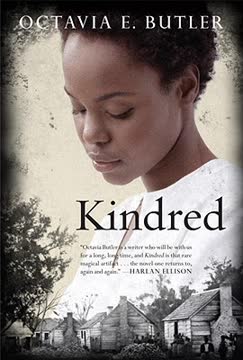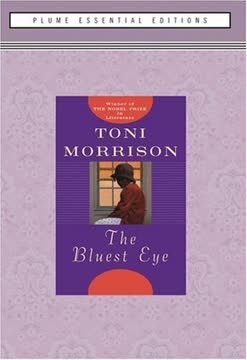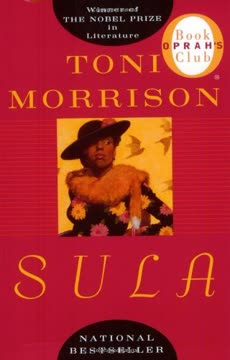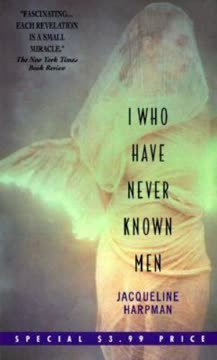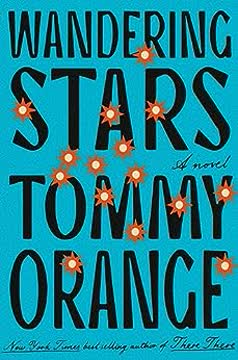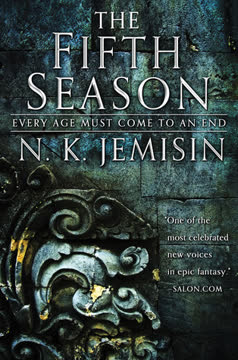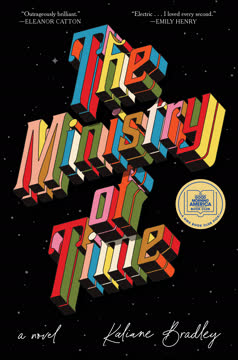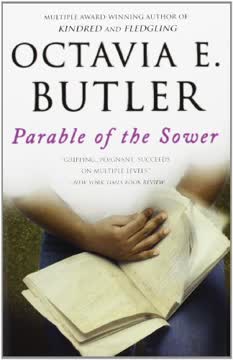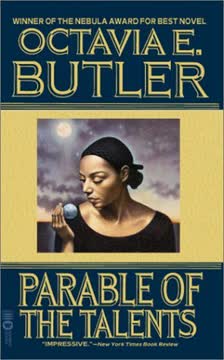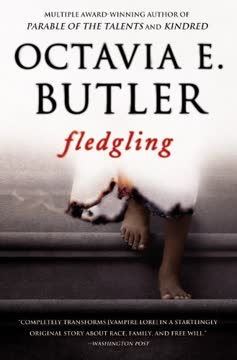Plot Summary
A Violent Homecoming
Dana, a modern black woman, is abruptly transported back to the antebellum South, a world fraught with danger and hostility. She arrives in the midst of a violent altercation between Rufus, a white man she has previously saved, and Isaac, a black man defending his wife, Alice. Dana intervenes to save Rufus, knowing his survival is crucial for her own existence. Despite Rufus's reprehensible actions, Dana must navigate the perilous dynamics of the time to ensure her safety and the possibility of reuniting with her husband, Kevin, who is also lost in this era.
Rufus's Dangerous Desires
Rufus, now a young man, has become a product of his oppressive environment. His obsession with Alice, a childhood friend, leads to violence and betrayal. Dana confronts Rufus about his attempted rape of Alice, highlighting the moral decay that has taken root in him. Despite his actions, Rufus is a key to Dana's survival and her connection to Kevin. She must balance her disdain for his behavior with the necessity of keeping him alive and cooperative.
A Desperate Bargain
Dana finds herself in a precarious position, needing to maintain a fragile alliance with Rufus. She negotiates with him, emphasizing their mutual dependence. Rufus, aware of Dana's unique ability to traverse time, holds power over her, but she leverages her knowledge and skills to ensure her safety. The tension between them is palpable, as Dana must navigate the complexities of their relationship while keeping her ultimate goal in sight: finding Kevin and returning home.
Alice's Tragic Capture
Alice and Isaac's attempt to escape ends in tragedy. They are captured, and Alice is brutally beaten and brought back to the Weylin plantation. Dana is tasked with nursing Alice back to health, a painful reminder of the brutal realities of slavery. Rufus's role in Alice's suffering is undeniable, yet Dana must work within the confines of her situation to provide care and maintain her tenuous position on the plantation.
A Fragile Trust
Dana's relationship with Rufus is fraught with tension and mistrust. She must carefully navigate their interactions, aware that her survival depends on his goodwill. Rufus's actions are unpredictable, and Dana must constantly assess the risks of trusting him. Her modern sensibilities clash with the harsh realities of the past, forcing her to make difficult choices to protect herself and those she cares about.
A Desperate Return
Dana is abruptly pulled back to the antebellum South, finding herself in a dire situation. She discovers Rufus unconscious, face down in a puddle, and saves him from drowning. Despite her resentment, she knows she must keep him alive to ensure her own existence and the continuation of her family line. The plantation remains a place of tension and danger, with Dana navigating the complexities of her relationship with Rufus and the other slaves.
Alice's Tragic End
Dana learns that Alice, overwhelmed by the loss of her children, has taken her own life. Rufus had sent their children away to punish Alice for attempting to escape, a decision that ultimately drove her to despair. Dana is devastated by the loss of her friend and the harsh realities of slavery that continue to haunt her. She is forced to confront the brutal consequences of Rufus's actions and the oppressive system they live under.
Rufus's Unraveling
Rufus is consumed by guilt and grief over Alice's death, and his behavior becomes increasingly erratic. He struggles to maintain control over the plantation and his own emotions, relying heavily on Dana for support. Dana, meanwhile, is torn between her duty to keep Rufus alive and her growing resentment towards him. The tension between them escalates as Rufus's actions become more unpredictable and dangerous.
A Final Confrontation
As Rufus's behavior becomes more threatening, Dana realizes she must take drastic action to protect herself. In a moment of desperation, she stabs Rufus to save herself from his advances. This act of self-defense is a turning point for Dana, forcing her to confront the moral complexities of her situation and the lengths she will go to for her own survival.
The Cost of Freedom
Dana is transported back to her own time, but not without a significant loss. Her left arm is severed in the process, a physical reminder of the trauma and violence she endured in the past. This injury symbolizes the lasting impact of her experiences and the sacrifices she made to secure her freedom. Dana must come to terms with the physical and emotional scars that remain.
Home and Reflection
Back in her own time, Dana grapples with the memories of her time in the past and the people she left behind. She and Kevin visit Maryland to find traces of the Weylin plantation, seeking closure and understanding. Dana's journey has changed her, leaving her with a deeper awareness of her heritage and the enduring legacy of slavery. She must reconcile her past with her present and find a way to move forward.
Characters
Dana
Dana is a modern black woman who is repeatedly pulled back in time to the antebellum South. Her intelligence and resilience are her greatest assets as she navigates the dangerous world of slavery. She is determined to survive and return to her husband, Kevin, while grappling with the moral complexities of her situation. Her relationship with Rufus is central to her survival, forcing her to confront the harsh realities of the past.
Rufus Weylin
Rufus is the heir to the Weylin plantation, struggling with the responsibilities and power that come with it. His obsession with control and his inability to cope with loss lead to destructive behavior, ultimately resulting in his downfall. Rufus's complex relationship with Dana is central to the narrative, as he relies on her for support while simultaneously threatening her safety.
Kevin Franklin
Kevin is Dana's husband, a white man from the modern era who becomes stranded in the past. His experiences in the antebellum South shape his understanding of history and his relationship with Dana. Kevin's support is crucial to Dana's survival, but he also struggles with the implications of their time-traveling experiences.
Alice Greenwood
Alice is a childhood friend of Rufus and the mother of his children. Her life is marked by tragedy and resilience, as she navigates the oppressive world of slavery. Alice's despair over the loss of her children and her inability to escape Rufus's control lead to her tragic end, highlighting the brutal realities of the time.
Tom Weylin
Tom Weylin is the owner of the plantation and Rufus's father. He embodies the oppressive power structures of the time, wielding control over the lives of those around him. His interactions with Dana are marked by suspicion and authority, highlighting the precariousness of her position. Weylin's actions are driven by a pragmatic cruelty, making him a formidable presence in Dana's life.
Sarah
Sarah is the cook on the Weylin plantation, a woman who has endured the loss of her children and the harsh realities of slavery. She is a source of stability and knowledge for Dana, offering guidance and support. Sarah's resilience and adaptability are key to her survival, making her a valuable ally for Dana.
Nigel
Nigel is a young slave on the Weylin plantation, eager to learn and improve his situation. His relationship with Dana is one of mutual respect and trust, as she teaches him to read and write. Nigel represents the potential for change and resistance within the oppressive system, embodying the hope for a better future.
Carrie
Carrie is a mute slave on the Weylin plantation, communicating through gestures and expressions. Her relationship with Nigel and her resilience in the face of adversity make her a symbol of quiet strength. Carrie's presence is a reminder of the diverse experiences of those living under slavery, highlighting the varied ways individuals cope with their circumstances.
Plot Devices
Time Travel
Time travel is the central plot device that connects Dana's modern life with the antebellum South. It serves as a mechanism for exploring the complexities of history and the impact of the past on the present. Dana's journeys through time force her to confront the brutal realities of slavery and the moral dilemmas that arise from her unique position. The unpredictability of her travels adds tension and urgency to her quest to find Kevin and return home.
Analysis
"Kindred" by Octavia E. Butler is a profound exploration of the intersections of race, power, and identity. Through the lens of time travel, Butler examines the enduring legacy of slavery and its impact on modern society. The novel challenges readers to confront the moral complexities of history and the ways in which the past continues to shape the present. Dana's journey highlights the resilience and strength required to navigate oppressive systems, while also emphasizing the importance of understanding and acknowledging one's heritage. The novel serves as a powerful reminder of the cost of freedom and the sacrifices made by those who came before us.
Last updated:
FAQ
Synopsis & Basic Details
What is Kindred about?
- A Modern Woman's Harrowing Journey: Kindred follows Dana, a young Black woman from 1976 Los Angeles, who is inexplicably pulled back in time to a pre-Civil War Maryland plantation. Each involuntary trip is triggered by a life-threatening situation involving Rufus Weylin, a white boy who grows into her distant ancestor and a complex, often cruel, slaveholder.
- Survival and Ancestral Ties: Dana must navigate the brutal realities of slavery, posing as a free Black woman or a slave, to ensure Rufus's survival long enough for him to father Hagar, her direct ancestor. Her own life, and that of her white husband Kevin, become entangled in the violent and morally compromising world of the antebellum South.
- Confronting History's Legacy: The novel is a visceral exploration of slavery's psychological and physical toll, forcing Dana to confront her heritage and the compromises her ancestors made to survive. It examines themes of power, identity, and the enduring impact of historical trauma on the present.
Why should I read Kindred?
- Visceral Historical Immersion: Kindred offers an unflinching, first-person experience of American slavery, making history feel immediate and deeply personal. It transcends typical historical fiction by placing a modern consciousness directly into the past, forcing readers to confront the brutal realities often sanitized or romanticized.
- Complex Moral Dilemmas: The narrative constantly challenges readers with difficult ethical questions, particularly through Dana's forced compromises to ensure her own existence and the survival of her ancestors. It explores the nuances of survival, complicity, and resistance in an oppressive system, prompting deep reflection on human nature and societal structures.
- Unique Blend of Genres: Octavia E. Butler masterfully combines elements of science fiction (time travel) with the neo-slave narrative, creating a genre-bending work that is both intellectually stimulating and emotionally gripping. The inexplicable nature of Dana's travel underscores the irrationality and horror of slavery itself, making it a powerful and unforgettable read.
What is the background of Kindred?
- Author's Personal & Historical Motivations: Octavia E. Butler was inspired to write Kindred after hearing a young Black man dismiss the struggles of past generations, claiming he would have resisted slavery. This sparked her desire to show the visceral reality and psychological complexities of survival under such a brutal system, drawing on her own family's history and her mother's experiences with racial prejudice.
- Rigorous Historical Research: Butler meticulously researched 19th-century Maryland, including slave narratives, historical documents, and maps, to create an authentic and detailed setting. This dedication to historical accuracy grounds the fantastical element of time travel, making the brutal realities of the Weylin plantation feel terrifyingly real.
- Subversion of Time Travel Tropes: Unlike traditional science fiction where time travel is often explained by technology, Kindred's mechanism remains a "grim fantasy," as Butler called it. This deliberate lack of scientific explanation emphasizes that the true horror lies not in the how, but in the what: the enduring legacy of slavery and its profound impact on identity and survival.
What are the most memorable quotes in Kindred?
- "I lost an arm on my last trip home. My left arm.": This opening line immediately establishes the novel's brutal realism and foreshadows the profound, irreversible cost of Dana's journeys. It encapsulates the physical and psychological scars left by her experiences in the past, signaling that she cannot return "whole" from the trauma of slavery.
- "Repressive societies always seemed to understand the danger of 'wrong' ideas.": Dana's reflection after burning her history book highlights the pervasive censorship and intellectual suppression inherent in slave societies. This quote underscores the power of knowledge and the constant threat it posed to the established order, connecting historical oppression to broader themes of authoritarian control.
- "A slave was a slave. Anything could be done to her. And Rufus was Rufus—erratic, alternately generous and vicious. I could accept him as my ancestor, my younger brother, my friend, but not as my master, and not as my lover.": This internal monologue reveals Dana's ultimate refusal to fully submit to Rufus's control, even in the face of his complex, manipulative affection. It defines the boundaries of her endurance and her unwavering assertion of self-ownership, even as she acknowledges the brutal realities of her situation.
What writing style, narrative choices, and literary techniques does Octavia E. Butler use?
- First-Person, Immersive Narrative: Butler employs a first-person perspective through Dana, drawing readers directly into her subjective experience of fear, pain, and moral compromise. This narrative choice fosters deep empathy and makes the historical realities intensely personal, blurring the line between reader and protagonist.
- Sparse, Direct Prose: Butler's writing is characterized by its directness and lack of embellishment, particularly in describing violence and suffering. This unadorned style enhances the brutal realism of the antebellum South, preventing romanticization and forcing readers to confront the raw, visceral nature of slavery.
- Symbolic Chapter Titles: The chapter titles ("The River," "The Fire," "The Fall," "The Fight," "The Storm," "The Rope") are elemental and archetypal, hinting at the escalating dangers and thematic significance of each journey without revealing plot specifics. This technique elevates individual events to universal struggles, reinforcing the novel's exploration of enduring human conflicts.
Hidden Details & Subtle Connections
What are some minor details that add significant meaning?
- Kevin's Premature Gray Hair: Kevin's entirely gray hair at 34, noted by Dana early on, subtly foreshadows the accelerated aging and profound stress he will experience during his five years stranded in the past. It hints at the psychological toll of the antebellum South on white individuals, even those not directly enslaved, and the way time distorts and ages them.
- Dana's "Slave Market" Job: Dana's casual labor agency in 1976, which she ironically calls a "slave market," is a subtle callback to the economic exploitation and dehumanization inherent in both historical slavery and modern precarious labor. This detail highlights the enduring echoes of oppressive systems in contemporary society, suggesting that certain forms of "freedom" still come with significant costs and power imbalances.
- Rufus's "Ugly Name": Dana's initial thought that "Rufus" is an "ugly name to inflict on a reasonably nice-looking little kid" subtly foreshadows the moral ugliness and cruelty that will define his adult character. This early judgment, seemingly superficial, hints at the inherent corruption of his environment and the tragic trajectory of his development.
What are some subtle foreshadowing and callbacks?
- Rufus's Early Cruelty: Rufus's casual admission of burning down a stable for revenge and his father's use of a whip on "niggers and horses" subtly foreshadows his later capacity for violence and his ingrained acceptance of slavery's brutality. This early insight into his character prepares the reader for his eventual descent into full-fledged slaveholder cruelty, despite Dana's influence.
- Kevin's "Zombie" Appearance: Kevin's initial observation that Dana looks like a "zombie" due to her exhaustion from writing callbacks to the dehumanizing effects of her future experiences in the past. It subtly hints at the profound psychological and physical toll that her time travels will take, making her literally feel like a "non-person" in the slave system.
- The "Kindred Spirit" Connection: Kevin describes Dana as a "kindred spirit" due to their shared passion for writing and their unconventional lives. This phrase subtly foreshadows the deeper, more complex "kindred" connection Dana will discover with Rufus, rooted in bloodline and a shared, albeit traumatic, destiny. It highlights the ironic and often painful nature of their bond.
What are some unexpected character connections?
- Sarah's Shared Grief with Dana: Sarah, the cook, initially appears as a pragmatic, almost stereotypical "mammy" figure. However, her quiet rage over her children being sold for Margaret's luxuries creates an unexpected emotional connection with Dana, who also experiences profound loss and powerlessness. This bond transcends racial and temporal divides, revealing a shared humanity in suffering.
- Nigel's Intellectual Kinship with Dana: Nigel, a young slave, develops an unexpected intellectual bond with Dana as she secretly teaches him to read and write. This connection highlights the thirst for knowledge and self-improvement among the enslaved, and Nigel's eventual role in covering Rufus's death and ensuring Dana's family line's survival underscores his deep loyalty and intelligence, defying the era's dehumanizing expectations.
- Margaret Weylin's Unacknowledged Empathy: Margaret Weylin, Rufus's mother, is portrayed as a neurotic, often cruel woman. However, her later mellowing due to laudanum and her unexpected kindness towards Nigel's children, coupled with her ability to "forget" Dana is Black when talking, reveals a hidden, albeit drug-induced, capacity for empathy and a complex internal struggle with the norms of her society.
Who are the most significant supporting characters?
- Nigel: The Embodiment of Hope and Resilience: Nigel, initially a young slave boy, grows into a resourceful and loyal man. His secret education by Dana, his marriage to Carrie, and his eventual role in covering Rufus's death and ensuring the survival of Joe and Hagar make him a pivotal figure. He represents the potential for agency and resistance within slavery, and his actions directly impact Dana's ability to return home and her family's future.
- Sarah: The Steadfast Matriarch and Moral Compass: Sarah, the cook, is a powerful figure of quiet strength and pragmatic survival. Her deep-seated grief over her sold children and her subtle acts of defiance (like feeding Dana better food) reveal the profound emotional cost of slavery. She serves as a mentor and protector for Dana, offering crucial advice and a grounding presence amidst the chaos, embodying the resilience of enslaved women.
- Alice Greenwood: The Tragic Mirror of Dana's Fate: Alice, Dana's direct ancestor, is a complex character whose life mirrors many of Dana's struggles with Rufus, but without the escape route of time travel. Her journey from a free-born woman to an enslaved mother, her resistance, and her ultimate tragic suicide underscore the brutal realities and psychological toll of slavery. Her story is a constant, painful reminder to Dana of what her own life could become.
Psychological, Emotional, & Relational Analysis
What are some unspoken motivations of the characters?
- Rufus's Deep-Seated Fear of Abandonment: Beyond his desire for control and his twisted love for Alice and Dana, Rufus is driven by a profound, almost primal fear of abandonment. His nightmares about Dana leaving him, his manipulation to keep her, and his desperate plea "You're not leaving me!" before his death, reveal a core insecurity stemming from his unstable childhood and his mother's emotional fragility. This fear fuels much of his destructive behavior.
- Kevin's Need for Validation and Purpose: While seemingly supportive, Kevin's eagerness to join Dana in the past and his later struggles to readjust to 1976 hint at an unspoken motivation for purpose and relevance. His five years in the past, where he actively helped slaves escape, gave him a clear, heroic role that was perhaps missing from his life as a struggling writer in the present. His difficulty returning to "normal" life suggests a deeper psychological need fulfilled by the extreme circumstances of the past.
- Margaret Weylin's Quest for Status and Control: Margaret's constant complaints, her jealousy of Dana, and her desire for "fancy things" stem from an unspoken insecurity about her social standing. As a "poor, uneducated, nervous, startlingly pretty young woman" married into wealth, she desperately seeks to assert her authority and prove her worth, often by demeaning others and demanding subservience, particularly from those she perceives as threats to her fragile position.
What psychological complexities do the characters exhibit?
- Dana's Internalized Trauma and Moral Compromise: Dana exhibits profound psychological complexity as she grapples with the trauma of slavery. She develops a "slave mentality" for survival, suppressing her modern identity and enduring abuse, which leads to self-loathing and a questioning of her own strength. Her struggle to reconcile her modern ethics with the pragmatic choices necessary for survival in the past creates deep internal conflict, leaving her with lasting psychological scars.
- Rufus's Entitlement and Destructive Affection: Rufus is a psychologically complex character, a product of his environment who simultaneously craves love and exerts brutal control. His "destructive single-minded love" for Alice and his possessiveness of Dana are intertwined with his ingrained sense of white male entitlement. He genuinely believes he is caring for them, even as he inflicts immense suffering, demonstrating the profound psychological distortion fostered by the institution of slavery.
- Kevin's Shifting Identity and Moral Erosion: Kevin's psychological journey is marked by a gradual erosion of his modern sensibilities. Initially a staunch abolitionist, his five years in the past force him to make compromises, including posing as a slave owner and participating in the system to survive. His later difficulty readjusting to 1976, his accent, and his violent outburst reveal the deep psychological impact of living in a morally compromised world, blurring his identity and challenging his core values.
What are the major emotional turning points?
- Dana's First Whipping: The brutal whipping Dana receives from Tom Weylin after attempting to escape is a major emotional turning point. It shatters her intellectual understanding of slavery and replaces it with visceral, personal trauma. This experience forces her to confront her own vulnerability and the inadequacy of her modern knowledge, leading to a profound shift in her survival strategy and a deeper, more desperate fear.
- Alice's Suicide and Rufus's Betrayal: Alice's suicide, triggered by Rufus selling her children, is a devastating emotional turning point. It exposes the ultimate cruelty of Rufus's "love" and the unbearable psychological toll of slavery. For Dana, it represents the failure of her efforts to influence Rufus and protect Alice, deepening her despair and solidifying her resolve that Rufus must die for her to truly escape.
- Kevin's Return and Subsequent Alienation: Kevin's return after five years is initially a moment of immense relief and joy for Dana. However, his subsequent struggle to readjust to 1976, his emotional distance, and his violent outbursts become a new source of emotional pain and uncertainty for Dana. This turning point reveals that even escaping the past doesn't guarantee a return to normalcy, and that the trauma has irrevocably altered their relationship.
How do relationship dynamics evolve?
- Dana and Rufus: From Savior to Captor/Captive: Their relationship begins with Dana saving Rufus as a child, establishing a paradoxical bond of dependence. Over time, as Rufus grows into a slaveholder, the dynamic shifts to one of captor and captive, marked by manipulation, resentment, and a twisted form of affection. Dana's role evolves from protector to reluctant accomplice, and ultimately, to his killer, reflecting the corrupting influence of power and the impossibility of true kinship under slavery.
- Dana and Kevin: From Equal Partners to Unequal Survivors: Initially, Dana and Kevin share an egalitarian, loving relationship. However, their time-travel experiences introduce profound imbalances. Kevin's longer stay in the past and his adaptation to its norms create a subtle distance and a shift in his perspective, making him less able to fully understand Dana's trauma. Their reunion is fraught with the challenge of reconnecting across their vastly different experiences, highlighting the lasting impact of their individual journeys.
- Dana and Alice: From Ancestor to Sister in Suffering: Dana's relationship with Alice evolves from a distant ancestral connection to a profound sisterhood forged in shared suffering. Despite their initial mistrust, they become confidantes and allies, with Dana attempting to protect Alice from Rufus's abuses. Alice's tragic fate deeply impacts Dana, solidifying her understanding of slavery's dehumanizing power and fueling her ultimate act of self-defense against Rufus.
Interpretation & Debate
Which parts of the story remain ambiguous or open-ended?
- The Mechanism of Time Travel: The novel deliberately leaves the "how" of Dana's time travel unexplained, referring to it as a "grim fantasy." This ambiguity forces readers to focus on the thematic implications of her journeys rather than the scientific logistics. It remains unclear whether the phenomenon is unique to Dana and Rufus, or if it's a broader, unexplained force, emphasizing the irrationality of the historical period itself.
- The Full Extent of Kevin's Transformation: While Kevin's five years in the past clearly change him (his accent, his scar, his difficulty readjusting), the full psychological and moral extent of his transformation remains somewhat ambiguous. Readers are left to ponder how deeply he internalized the values of the antebellum South and what compromises he made beyond those explicitly stated, adding a layer of complexity to his character and his relationship with Dana.
- The Future of Joe and Hagar: Although Rufus grants his children freedom certificates, their ultimate fate and the success of their lives in a post-slavery world are left open-ended. The epilogue mentions Hagar living long enough for the Fourteenth Amendment to free her, but the challenges they would face as free Black children in a still-prejudiced society are only hinted at, leaving readers to consider the ongoing struggles for true liberation.
What are some debatable, controversial scenes or moments in Kindred?
- Dana's Complicity in Alice's Exploitation: One of the most controversial moments is Dana's decision to persuade Alice to go to Rufus's bed to avoid a beating. This act forces Dana to compromise her modern feminist ethics for the sake of her own survival and the preservation of her family line. Readers often debate whether this was a necessary evil or a profound moral failing, highlighting the impossible choices faced by enslaved women.
- Rufus's "Love" for Alice and Dana: Rufus's complex, possessive, and often violent "love" for Alice and Dana is highly debatable. While he claims to care for them, his actions consistently cause them immense suffering. This portrayal challenges readers to confront the distorted nature of relationships under slavery, where power dynamics warp affection into something destructive and morally repugnant.
- The Amputation of Dana's Arm: The physical loss of Dana's arm at the novel's end is a shocking and controversial detail. While Butler states it symbolizes the lasting trauma of slavery, some readers debate its necessity or its literal interpretation. It forces a discussion on the physical and psychological costs of confronting history, and whether such a brutal, irreversible injury is a fitting or excessive metaphor.
Kindred Ending Explained: How It Ends & What It Means
- The Final Confrontation and Rufus's Death: The novel culminates in Dana's last trip to the past, where Rufus, consumed by loneliness and a twisted desire for her, attempts to force her into a sexual relationship. In a desperate act of self-defense, Dana stabs him twice, killing him. This violent act is the ultimate breaking of their paradoxical bond, as Dana chooses her own survival and autonomy over the preservation of her ancestor's life.
- The Severed Arm: A Permanent Scar of History: As Dana is pulled back to 1976, Rufus's dying grip on her arm causes it to fuse with the living room wall, resulting in its amputation. This physical loss is the central symbolic meaning of the ending: Dana cannot return from the past "whole." It represents the indelible scars—physical, psychological, and emotional—that slavery leaves on individuals and generations, emphasizing that confronting this brutal history comes at a profound, irreversible cost.
- Searching for Traces and the Hope for the Future: In the epilogue, Dana and Kevin return to Maryland, seeking tangible evidence of the Weylin plantation and their ancestors. They find records of Rufus's death by fire (likely set by Nigel to cover Dana's actions) and the subsequent sale of slaves, but also the freedom certificates for Joe and Hagar. This search for historical truth and the survival of her lineage, despite the trauma, signifies a cautious hope for the future and a commitment to understanding and acknowledging the enduring legacy of slavery.
Review Summary
Kindred is widely praised as a powerful and emotionally devastating novel that explores slavery through time travel. Readers appreciate Butler's unflinching portrayal of the brutality and complexity of the antebellum South, as well as her nuanced character development. Many consider it a must-read, highlighting its relevance to contemporary discussions on race and power dynamics. The book's blend of historical fiction and science fiction elements is seen as innovative and engaging. Some readers note the difficulty of the subject matter but emphasize its importance in understanding American history.
Similar Books
Download PDF
Download EPUB
.epub digital book format is ideal for reading ebooks on phones, tablets, and e-readers.
